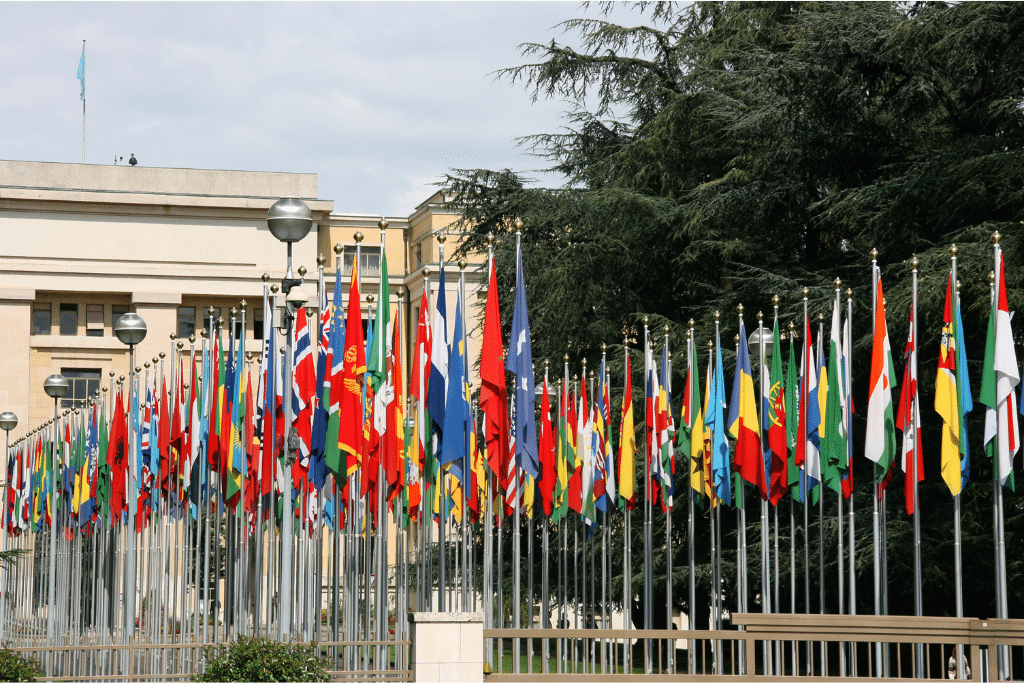The International Court of Justice (ICJ) will be asked to give advisory opinions on national climate obligations and human rights following Wednesday’s vote on a landmark resolution on climate justice.
—
In a major win for small island states, the United Nations General Assembly passed on Wednesday a historic resolution on climate justice asking the world’s top court to define the obligations of individual states to fight climate change.
In 2019, Pacific island law students initiated a campaign demanding clarity regarding the obligations of small and big countries in terms of dealing with global warming. Led by the Republic of Vanuatu, the four-year campaign culminated in Wednesday’s landmark resolution that will finally see the International Court of Justice (ICJ) ruling on climate change and human rights.
Small, low-income countries have always been disproportionately affected by the unprecedented impacts of a warming planet despite contributing little to nothing to global emissions and pollution.
Last year, one-third of Pakistan was completely submerged following some of the most devastating floods the developing country has ever experienced. Nearly 1,700 people died and the loss of two million homes as well as thousands upon thousands of kilometres of roads, bridges, and railways led to the displacement of more than 33 million people.
Earlier this month, Vanuatu was slammed by back-to-back Category 4 cyclones, with 10% of its population still in evacuation centres; and a few weeks back, record-breaking Cyclone Freddy ripped through southern Africa’s Malawi, Mozambique, and Madagascar, killing more than 500 people and displacing 22,000.
You might also like: What Is Climate Justice and Why Is It Important?
Vanuatu Prime Minister Ishmael Kalsakau hailed Wednesday’s vote as “a win for climate justice of epic proportions […] that will have a powerful and positive impact on how we address climate change and protect present and future generations.”
Cynthia Houniuhi, president of Pacific Island students fighting climate change (PISFCC), the youth-led organisation behind the campaign, described her excitement in knowing that “the world has listened to the Pacific youth.”
“Through no fault of our own, we are living with devastating tropical cyclones, flooding, biodiversity loss and sea level rise. We have contributed the least to the global emissions that are drowning our land.”
The UN has passed a historic resolution seeking an advisory opinion from the ICJ on climate change.
Our campaigner @vishlprasad explains what you need to know about this momentous day for our planet ????⚖️ pic.twitter.com/M5DfTZoG4c
— Pacific Islands Students Fighting Climate Change (@pisfcc) March 30, 2023
While not legally binding, the International Court of Justice’s advisory opinion could help clarify legal obligations under other international agreements and thus influence future negotiations.
The US, the world’s second-largest emitter of greenhouse gases, did not support the resolution. A State Department spokesperson said the country believes a judicial process “will likely accentuate disagreements and not be conducive to advancing our ongoing diplomatic and other processes.”
“We believe that diplomacy – not an international judicial process – is the most effective path forward for advancing global efforts to tackle the climate crisis,” he added.
You might also like: How Marginalised Groups are Disproportionately Affected by Climate Change


















